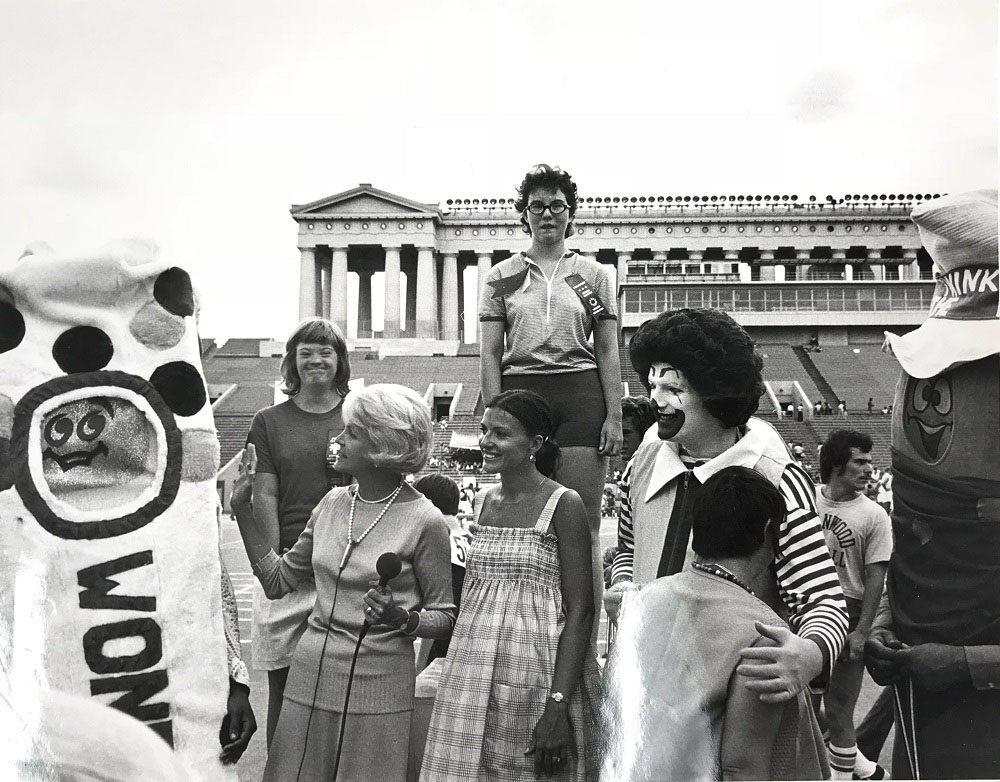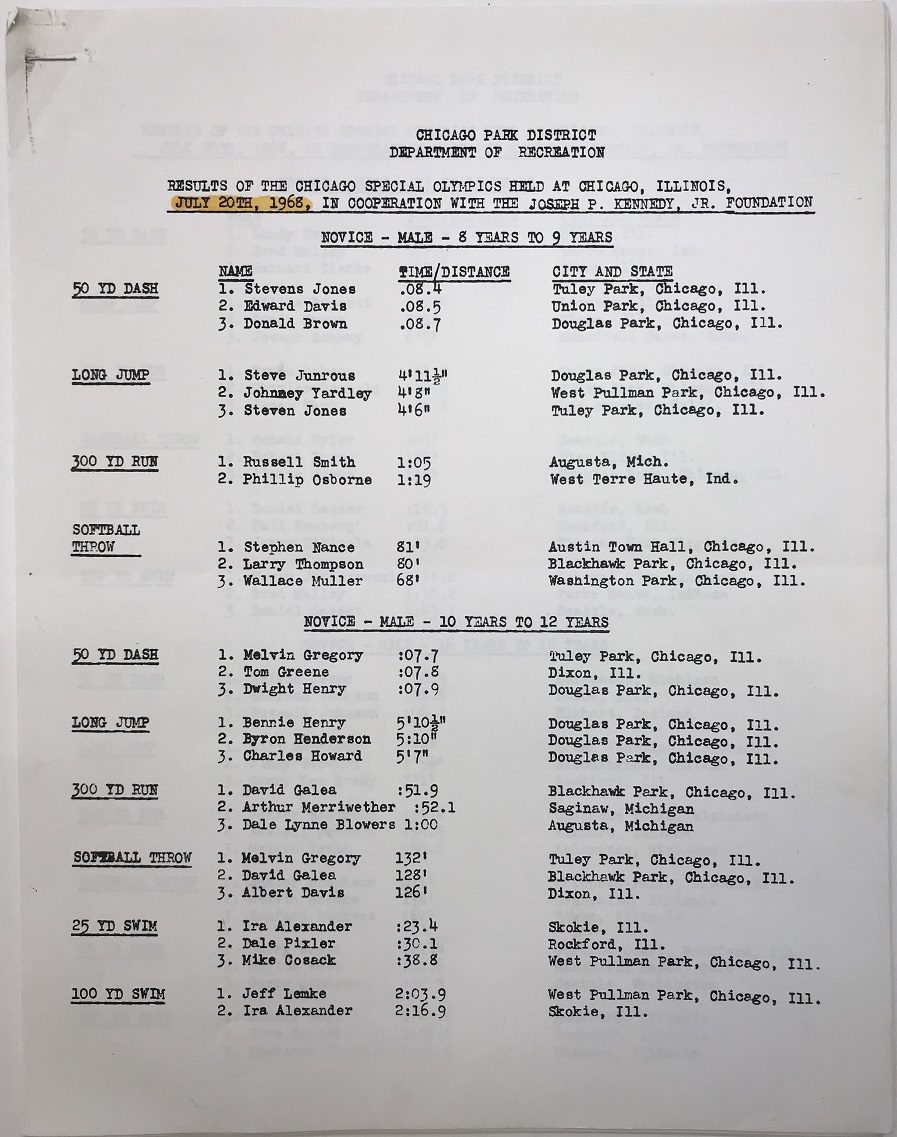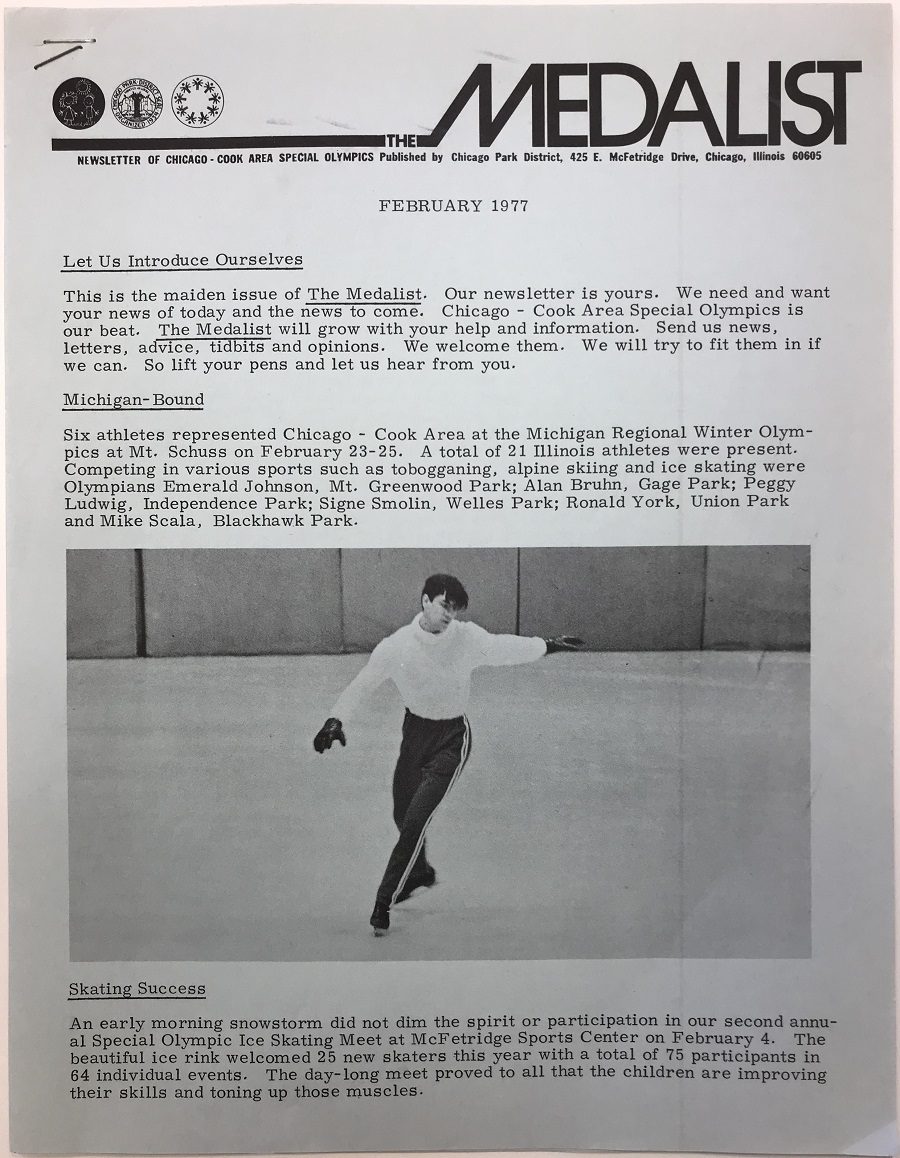This past winter and spring, CHM collections interns processed the Museum’s Special Olympics Chicago records under the supervision of archivist Julie Wroblewski. Erin Glasco handled the manuscript material, while Ashley Clark handled the photographic portion.
The Special Olympics Chicago records detail the history and trajectory of the Special Olympics here since the first games were held at Soldier Field on July 20, 1968. The inaugural games were organized by Illinois Supreme Court Justice Anne McGlone Burke, who was then a twenty-three-year-old physical education teacher with the Chicago Park District, and Eunice Kennedy Shriver and the Joseph P. Kennedy Jr. Foundation. Burke conceived of the idea to hold sports competitions for her students after attending a seminar lead by Dr. William Freeberg, a physical education professor at Southern Illinois University, whose research indicated that providing physical fitness opportunities for children with disabilities could lead to improvements and opportunities in other areas of their lives. After the initial games, Shriver and the Kennedy Foundation took over the operations for what was eventually known as Special Olympics, Inc.

Burke (in plaid) at a Special Olympics award ceremony at Soldier Field in 1976.
The manuscript portion provides a fascinating and comprehensive look at the planning of the first Special Olympics. It also contains programs and game results from a range of athletic and fundraising events held by Special Olympics Chicago and attended by local athletes as well as regional and state iterations of the games. There are also several letters and memos between Burke and Shriver highlighting the evolution of the management and scope of the institution and crediting Burke’s role in creating the event.

Documents in the collection include results from the first Special Olympics (above) and newsletters for Special Olympics Chicago.

The collection also has a large visual history of Special Olympics Chicago sports, events, and people, with more than 3,000 color and black-and-white prints. The images capture the various sports and opportunities that the Special Olympics offered, including common sports like track and field, swimming, basketball, gymnastics, and skiing, but also sledge hockey and broomball, from the earliest days into the 2000s. The photographs also show how the organization is more than just the annual competitions. Included are images of year-round events at Chicago parks, events for fundraising, and programs aimed at raising awareness of developmental disabilities. When seen together, the collection demonstrates the progression of Special Olympics from local to international in scope and the positive impact it has had on the children and adults who have participated and benefited from its services since its inauguration.
There is little doubt of the lasting, positive impact that Special Olympics Chicago provides for its athletes. We look forward to the public enjoying this collection as much as we have.